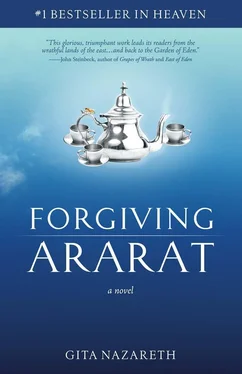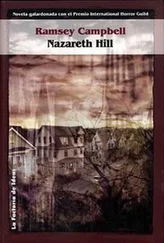“It’s ok, honey,” Mr. Gwynne says. He’s here to protect me, my knight in shining armor, gallant and handsome; I have a secret crush on him. “Take a moment to blow your nose; I know it’s difficult with one hand. I’m sorry we have to do this, but the makers of the manure spreader here want their day in court, and they’re entitled to it. Just a few more questions, ok? We need you to be brave now and tell the truth. Are you certain the guard was in place? I’m talking about the metal shield over the chain.”
“Oh, yes, Mr. Gwynne, I’m certain.”
“And you slipped and bumped into it?”
“Yes.”
“And it gave way?”
“Yes.”
“And your arm got caught in the chain.”
“Yes. Gee, I’m sorry, Mr. Gwynne; I’m awfully sorry for all this. I should have been more careful.”
“You have nothing to be sorry for, Brek,” he reassures me. “We’re the ones who are sorry for what happened to you. You’ve been very brave for us today, and we appreciate it.”
The jury returned a verdict against the manufacturer in less than an hour: four hundred and fifty thousand dollars. An expert hired by Mr. Gwynne testified that if the spreader had been designed properly, there would have been no need to remove the guard to fix the problem in the first place, meaning that my lie might not have made the difference after all. One-third of the money went to Mr. Gwynne; another third put me through an expensive Quaker boarding school, four years at a private liberal arts college, and three years at an Ivy League law school; the rest paid my medical bills with some left over for other expenses, including a semester abroad in Europe. Only my grandfather knew for certain I lied about the guard, but we never spoke about it to each other. He testified that he couldn’t remember whether he left it on or off, which made it seem like only half a lie.
Luas wasn’t finished with me yet: “Nobody in the courtroom that day knew,” he said, “not your parents, not Bill Gwynne, not even your grandfather-that you deliberately put your hand into the machine. You told only one person, Karen Busfield, and that was almost twenty years after the trial. Do you remember?”
It came back to me with the same clarity as the trial, as if it were happening all over again-as if I were seeing my own life being replayed in the Urartu Chamber. Karen called me late one night; Bo and I were asleep.
“Hi, Karen,” I said, yawning into the phone. “What time is it? Are you ok?”
“ 2 a.m. Sorry for calling you so late. I need a lawyer.”
“I told you this day would come,” I quipped. The sounds of a jail echoed in the background; rough voices, the slamming echo of steel doors. “Where are you?”
“ Fort Leavenworth.”
“ Fort Leavenworth? What are you doing there, counseling inmates?”
“I am an inmate.”
I could tell she wasn’t joking.
Bo rolled over. “What’s going on?” he said.
“It’s Karen,” I whispered, covering the phone. “I think she’s been arrested.”
I uncovered the phone. “You’re a chaplain, Karen,” I said. “What could you have possibly done?”
“I can’t talk about that right now,” she said.
“Ok. Can you tell me what they’re charging you with?”
“Assault, destruction of government property and…”
“And what?”
“Treason.”
“ Treason? Are you serious?” Bo’s eyes widened.
“Yes.”
“I’m coming, and I’m bringing Bill Gwynne with me.”
“No, just you,” she said.
“Treason is a big deal, Karen; I don’t want to scare you, but it carries the death penalty. I’m bringing Bill with me-and maybe twenty other lawyers. Let me call the airlines. We’ll be there as soon as we can.”
“Just you, Brek, okay?” she said, desperately, on the verge of breaking down. “Please?”
“Okay,” I said. “For now. We can talk about it when I get there.”
“Thanks,” she said. “Don’t rush, take care of Sarah first. I’ll be fine. I’m really sorry about this. How’s she doing?”
“She’s fine. It’s you I’m worried about.”
“I’m really sorry-”
“Don’t worry about it. Let me pack a bag. Do you need anything?”
“Just you,” she said. She was crying and I could hear voices in the background. “They’re saying I’ve got to hang up now,” she sniffled.
“Everything will be all right,” I said. “I’ll be there as soon as I can. Stay strong. And no matter what you do, don’t answer any questions, okay? Tell them you’re invoking your right to remain silent until you’ve spoken with your attorney.”
“Okay. Thanks, Brek. I’ve got to go. Bye.”
I hung up the phone.
Bo was fully awake and sitting up now. “They’re charging an Air Force chaplain with treason?” he said. “We did some research into treason cases for an espionage story we were doing a few years ago; there have been fewer than like fifty treason prosecutions in the entire history of the United States. This is going to be front page national news.”
“I know,” I said bleakly. “But you know you can’t be the one to break the story, right? Karen called me as her lawyer; my conversation with her was a confidential attorney-client communication.”
“But-”
“Promise me, Bo,” I said. “This is serious. I know you want to be the first on a story like this, but there’s no way you can report it or tip anybody else about it. I can’t be Karen’s lawyer if I have to worry that everything I say in my own home might wind up on the wires the next day.”
“Ok,” he said glumly, “but get ready: you’re going to be facing a lot of other reporters-guys who won’t be as nice as me. You’ll be on television every day-maybe even more than me.”
“Great, I’ll replace the weather girl.”
“Let’s not get carried away.”
“Can you take care of Sarah while I’m gone?”
“We’ll manage. I’ll call in a few favors.”
“Thanks. I’m going to need your help to get through this.”
“You’ve got it, whatever you need.” He kissed me on the forehead. “Go kick some prosecutor’s butt and make me proud.”
I hugged him and headed for the shower.
The next morning, I flew to Kansas City, rented a car, and drove to Leavenworth. Two female guards escorted Karen, wearing handcuffs and dressed in orange prison coveralls, into the small room with a table and two chairs reserved for attorney visits. Karen looked terrible-pale and gaunt with dark circles under her puffy, red eyes as though she hadn’t slept or eaten in days. She took the chair across from me and flashed me a weak smile. The guards left the room and closed and locked the door behind them so our conversation would be confidential, but they continued monitoring us through a window.
“Oh, sweetie,” I said, reaching out to touch her hand. One of the guards rapped on the window and gestured toward a sign in the room saying, “No Physical Contact Permitted.” Karen scowled at the guard, but I obeyed, putting my hand in my lap. We looked at each other silently.
“I’m really sorry I dragged you all the way here,” she said. “How was your flight?”
“Fine,” I said, “no problems. How are you holding up? Are they treating you okay?”
She looked down and tugged on her coveralls. “They took my clerical collar.”
“Don’t worry,” I said, “we’ll get it back. I’m meeting with the U.S. Attorney later this afternoon to see if I can get this cleared up, or at least negotiate a low bail; you’re a priest with no criminal history and you’re not much of a flight risk.” I glanced at my watch. “We only have forty-five minutes. Tell me what happened.”
Читать дальше












